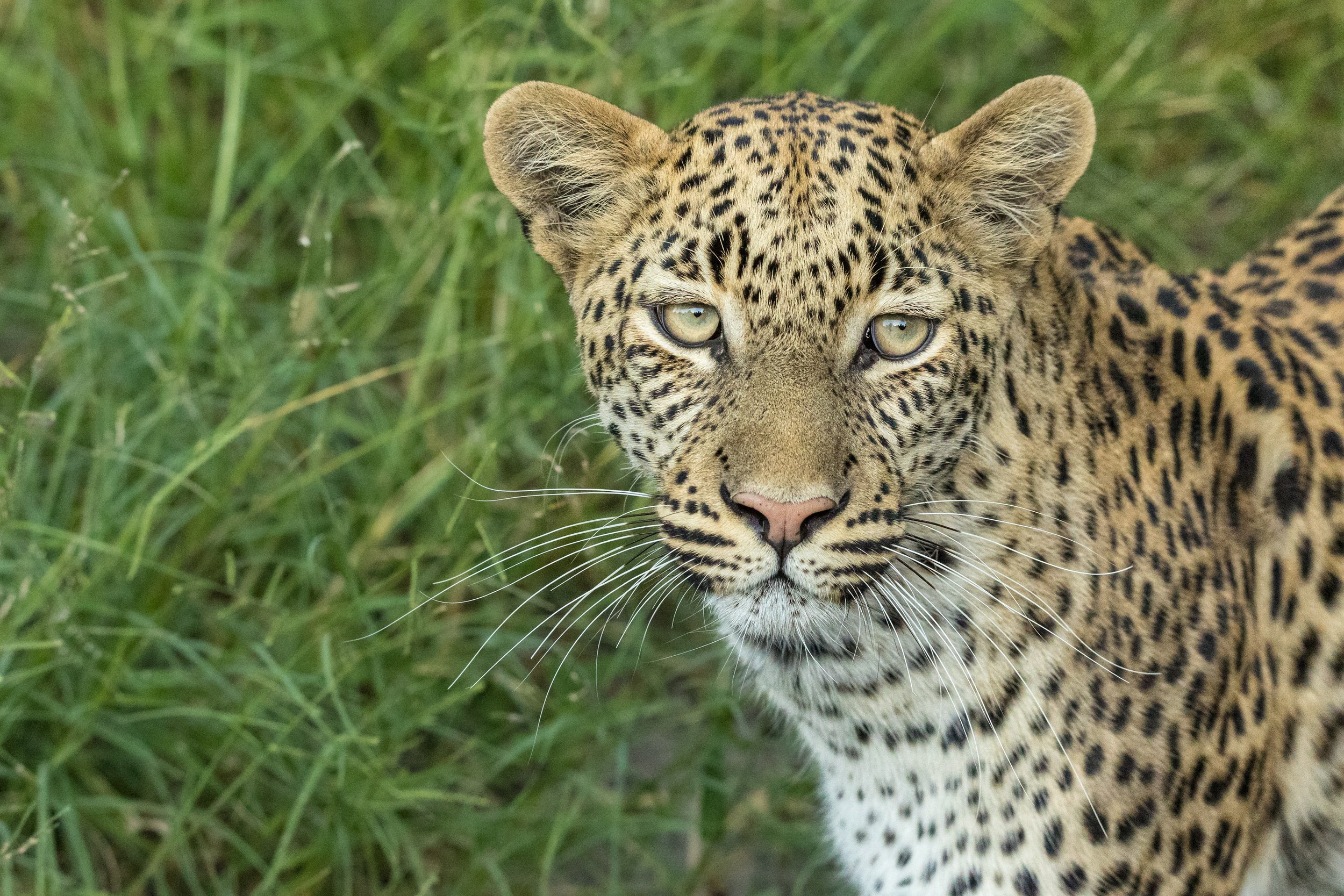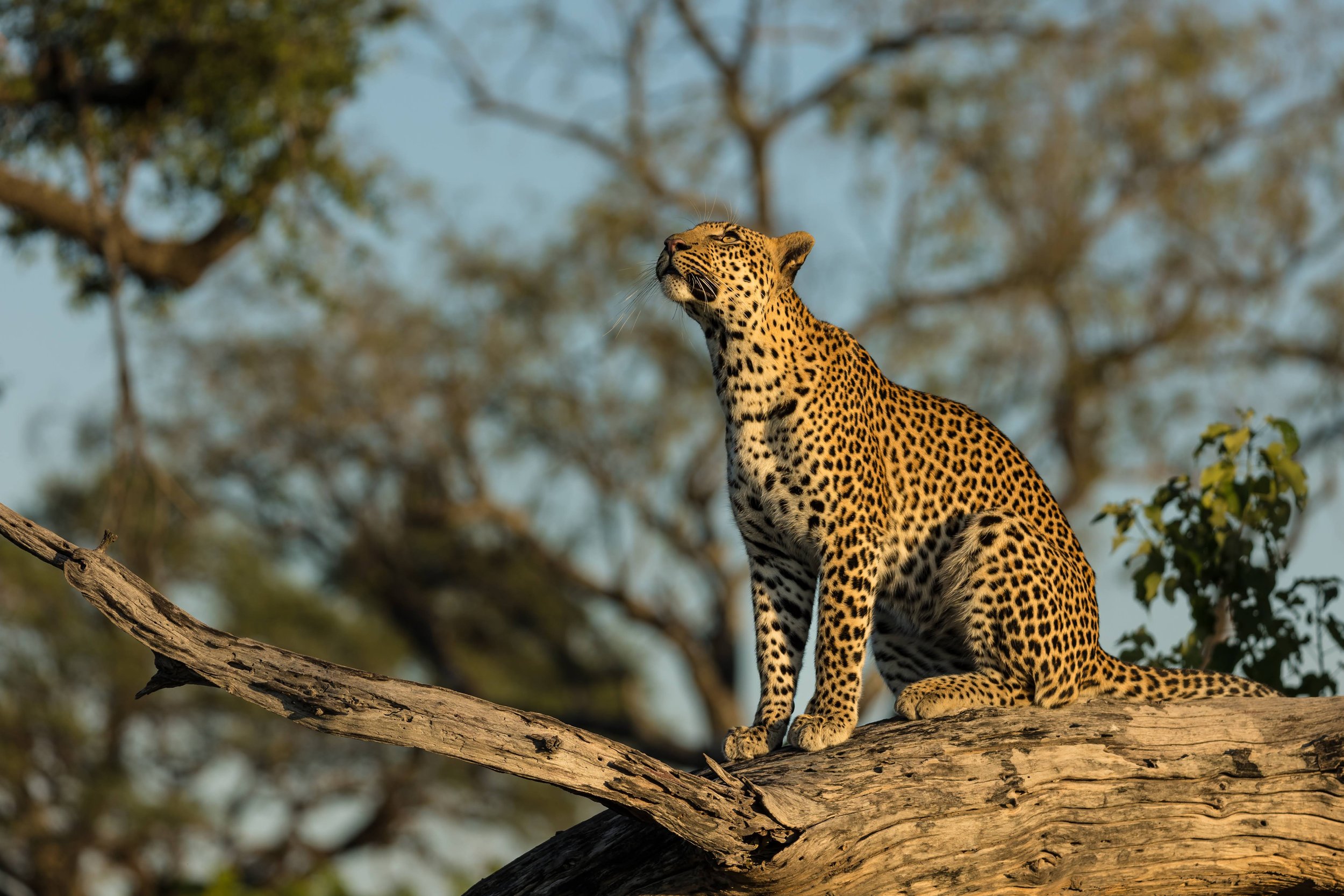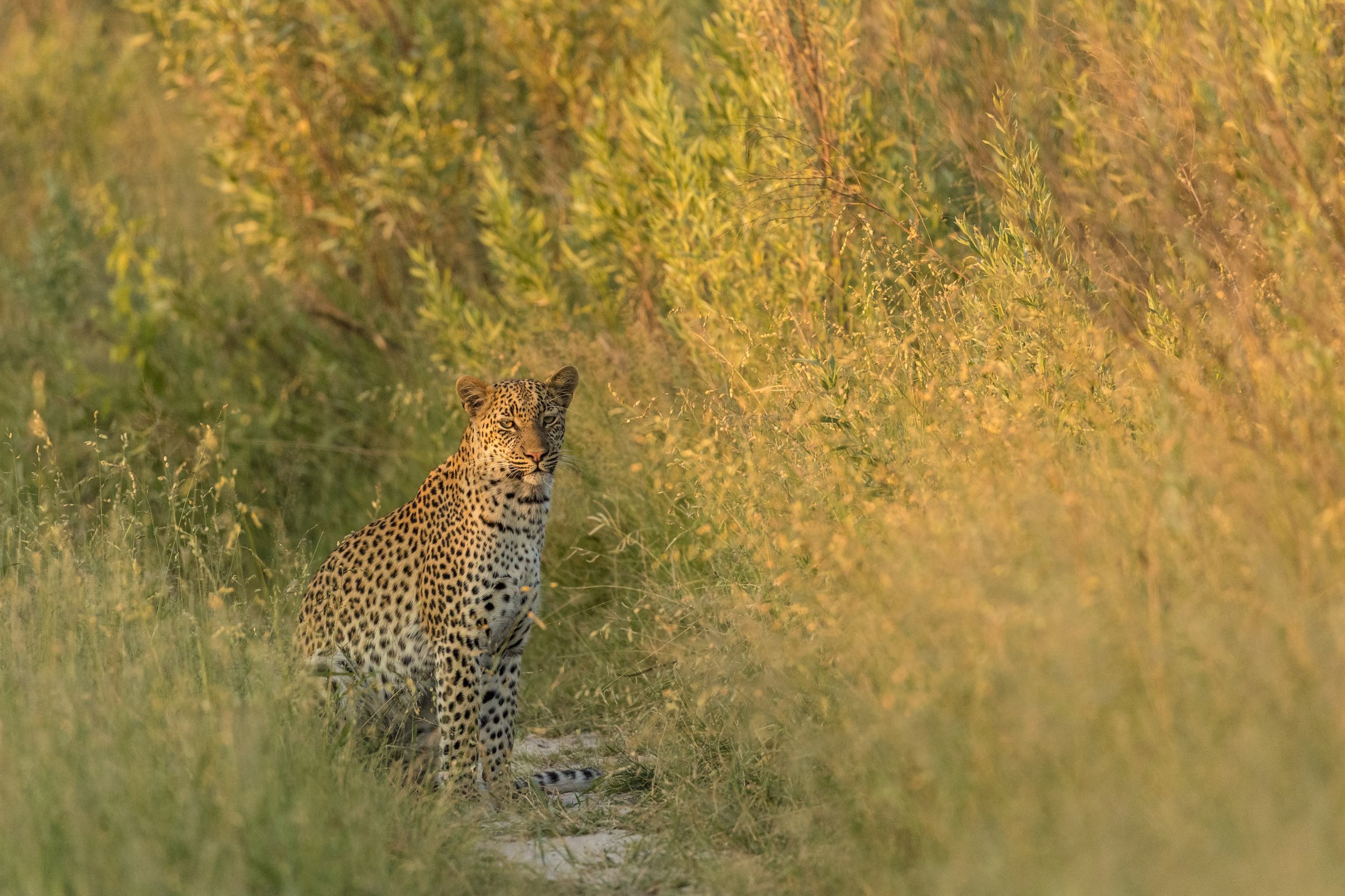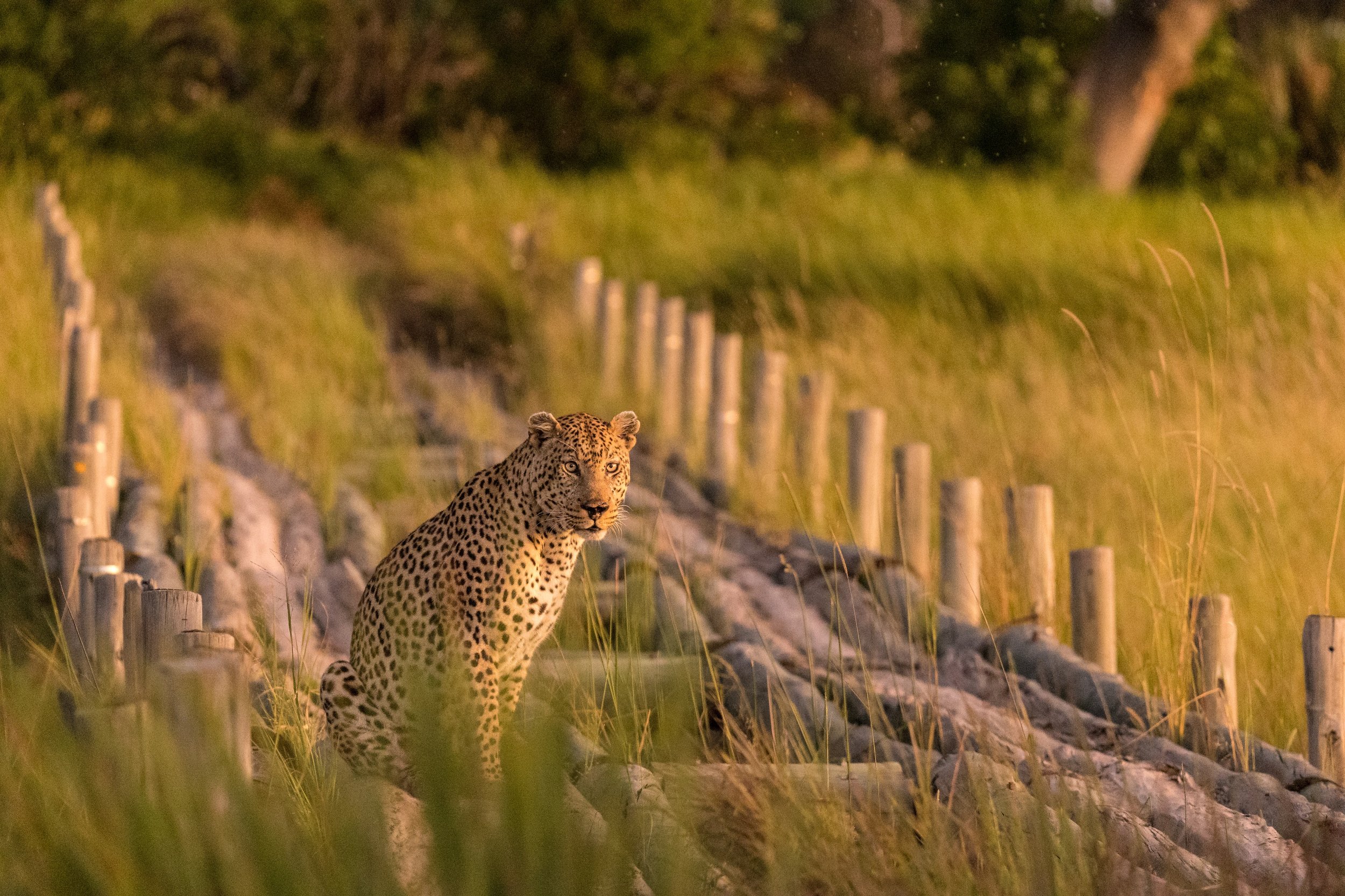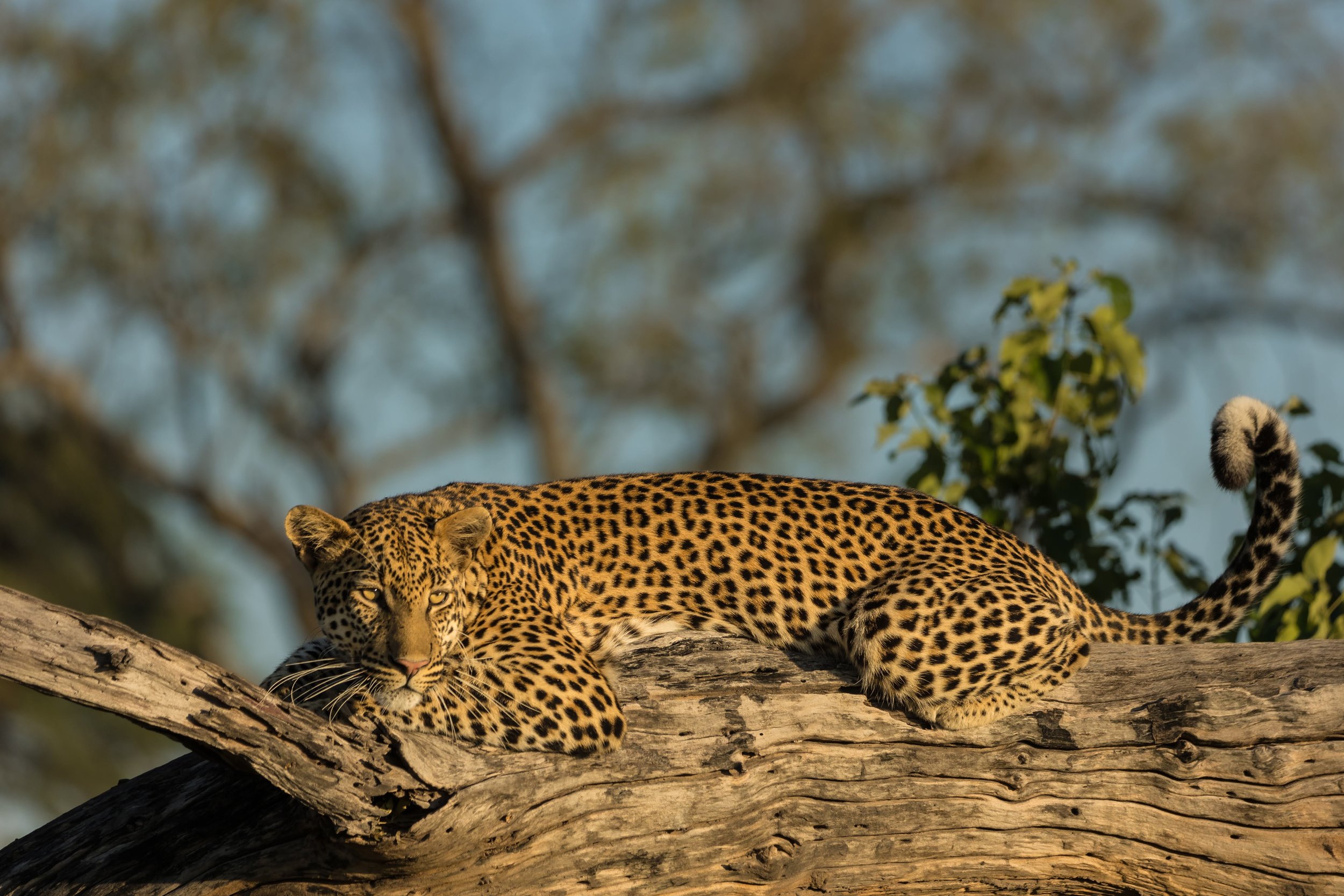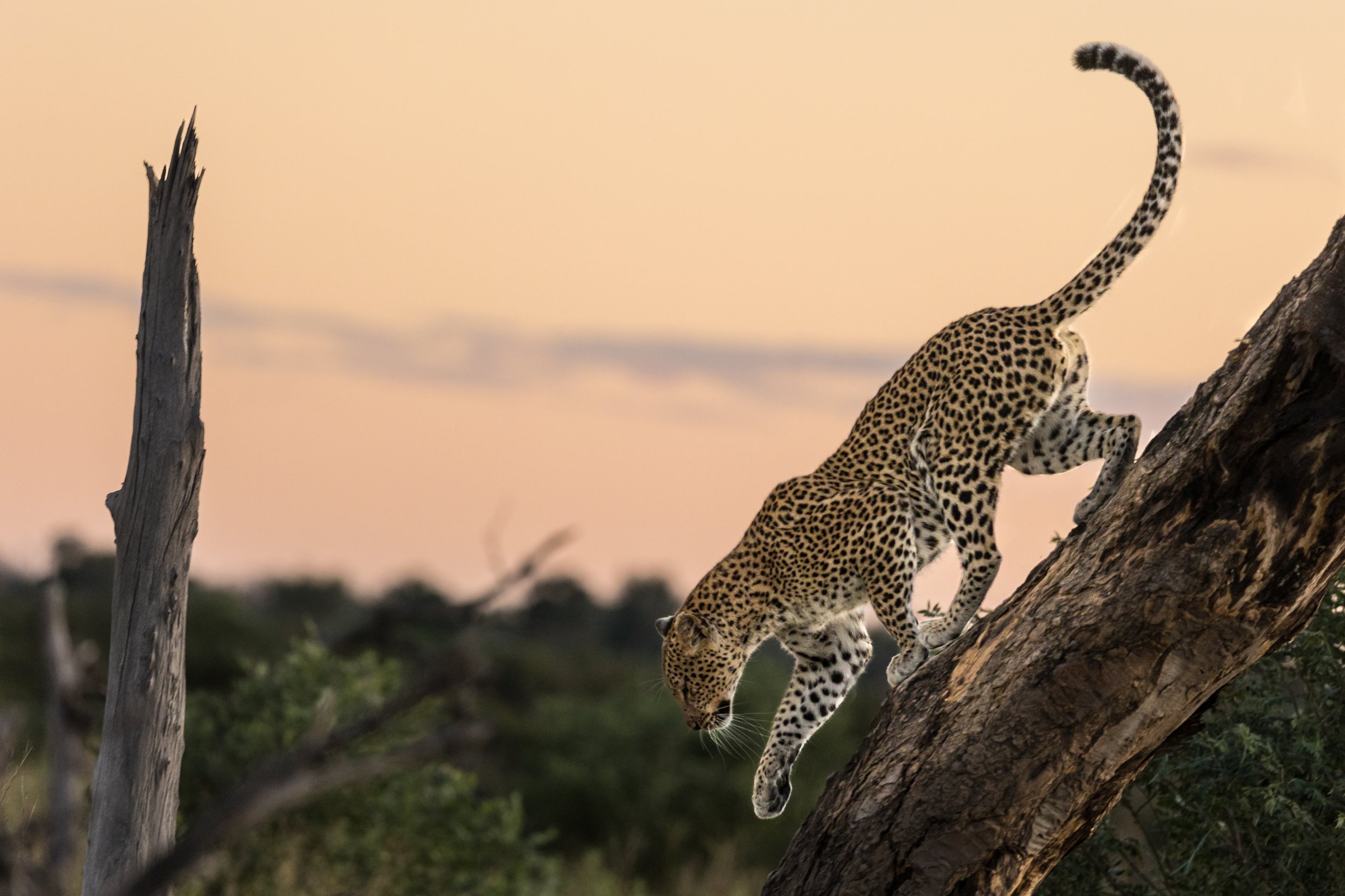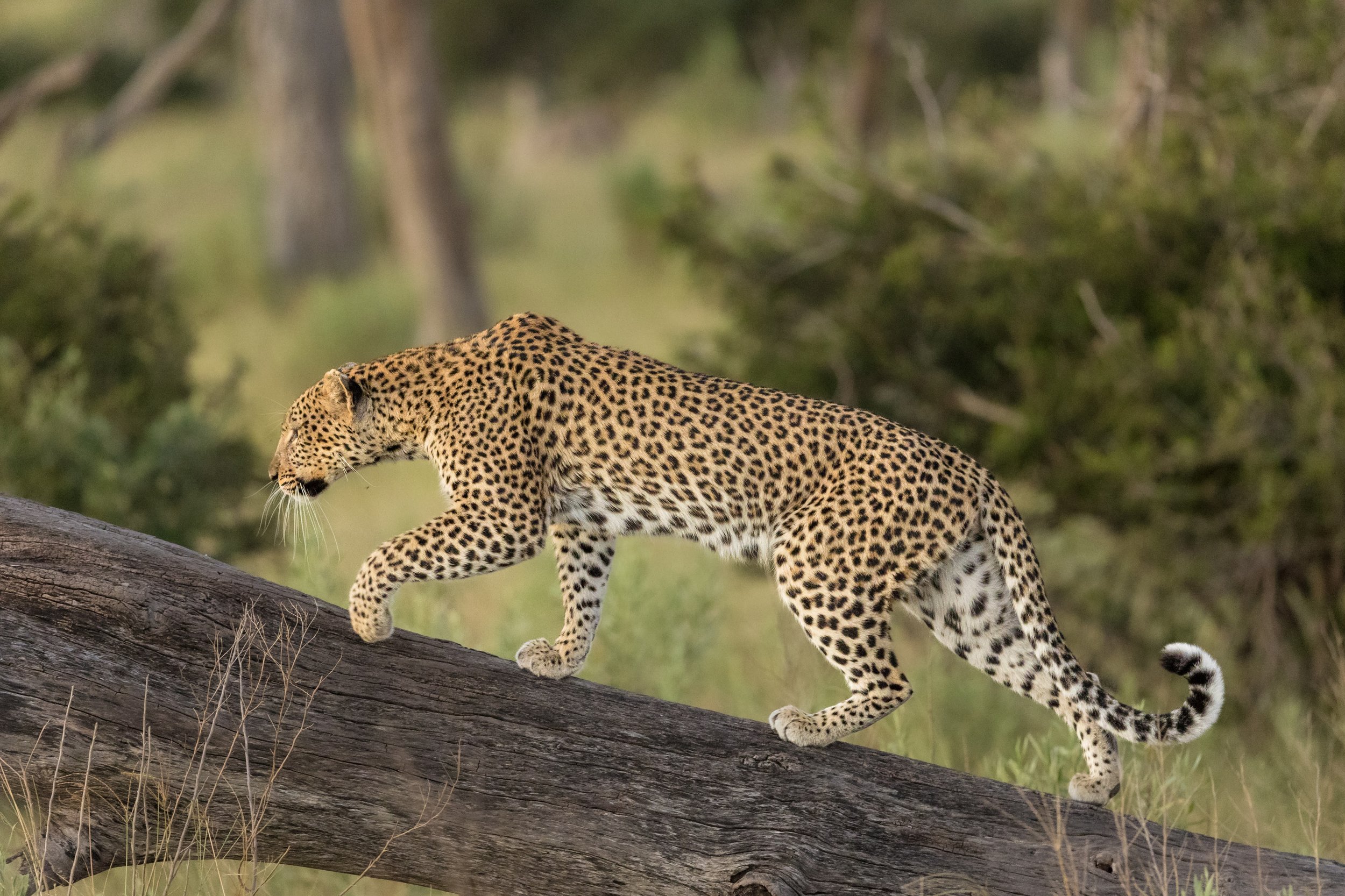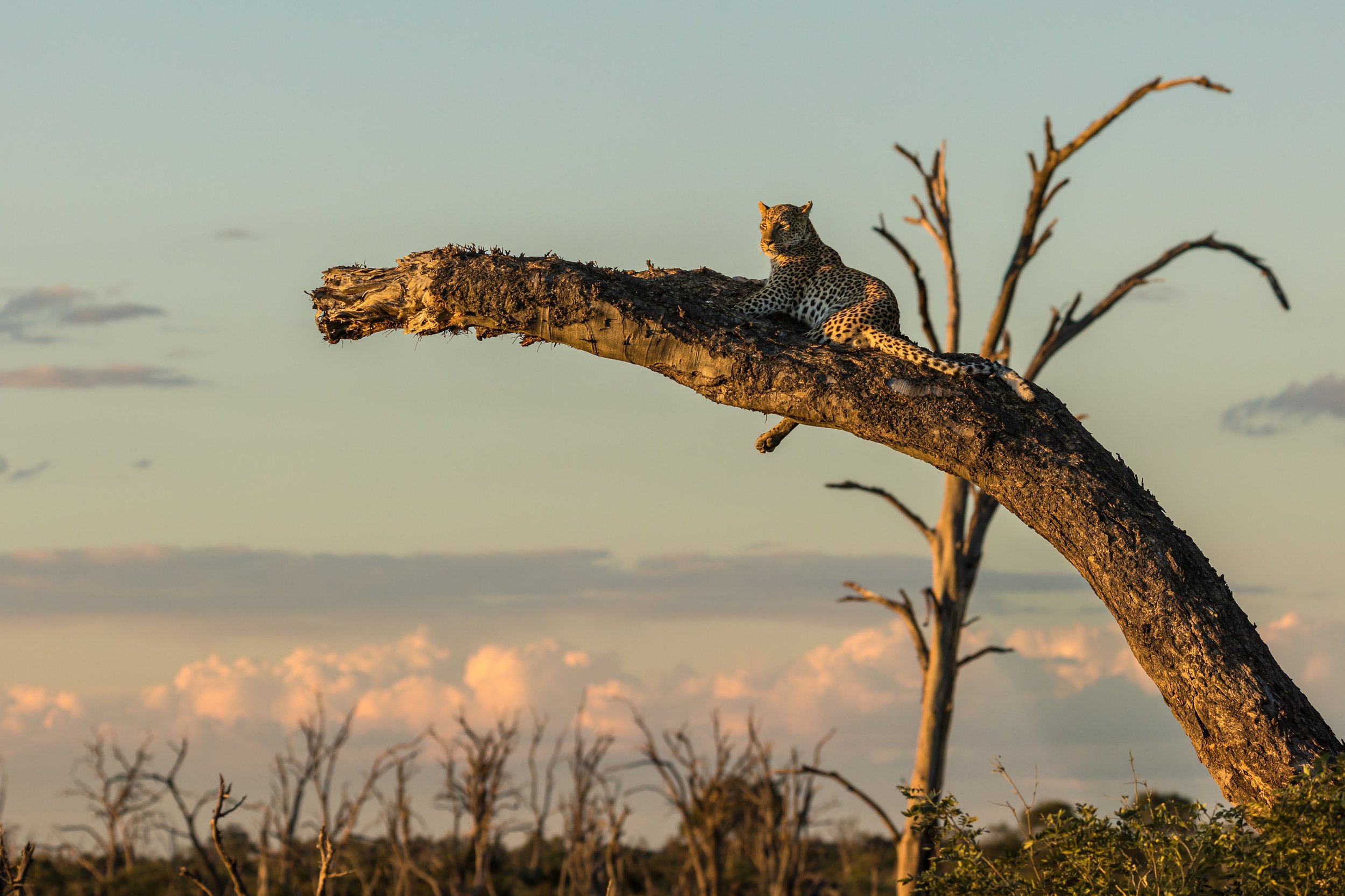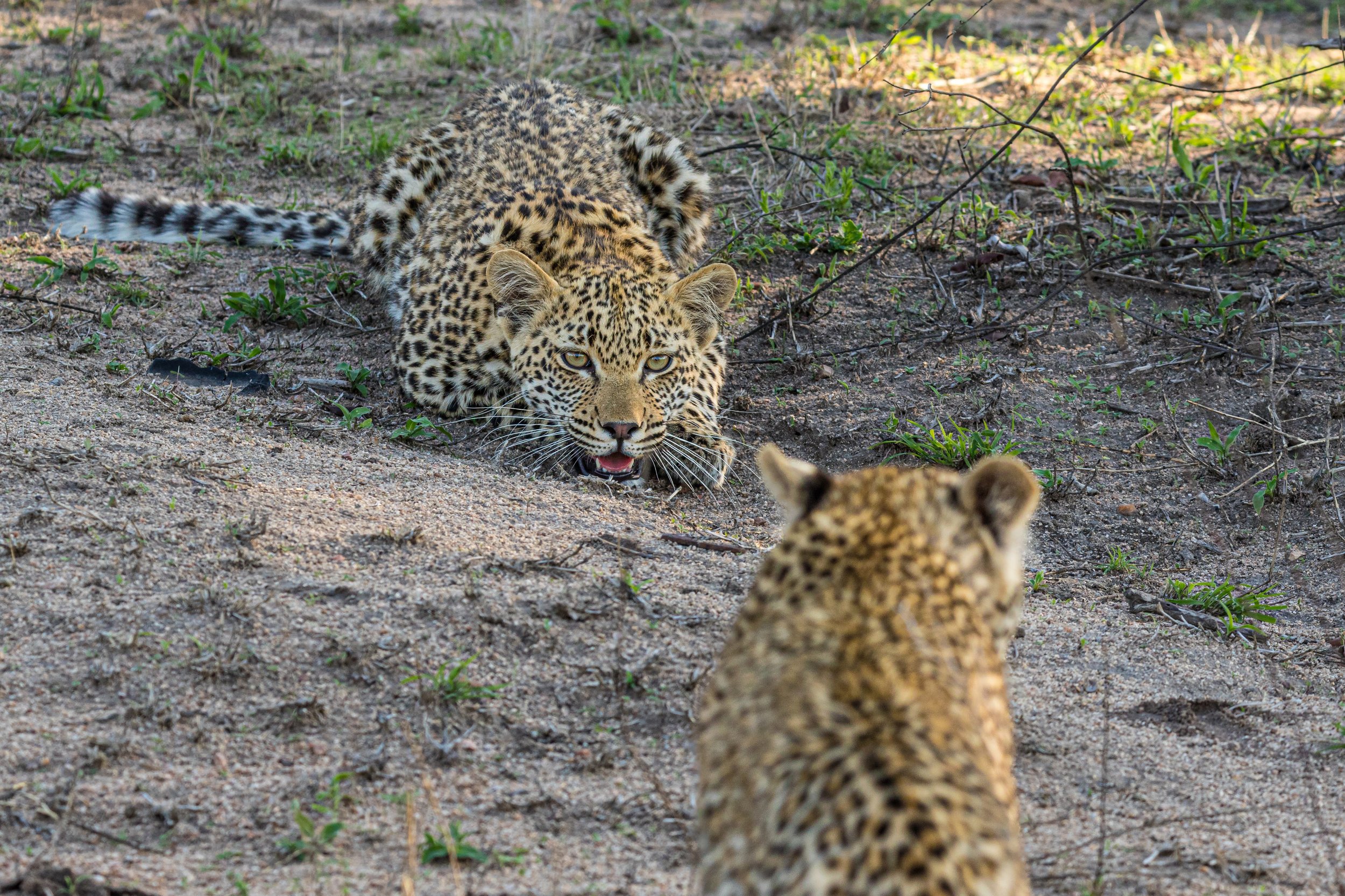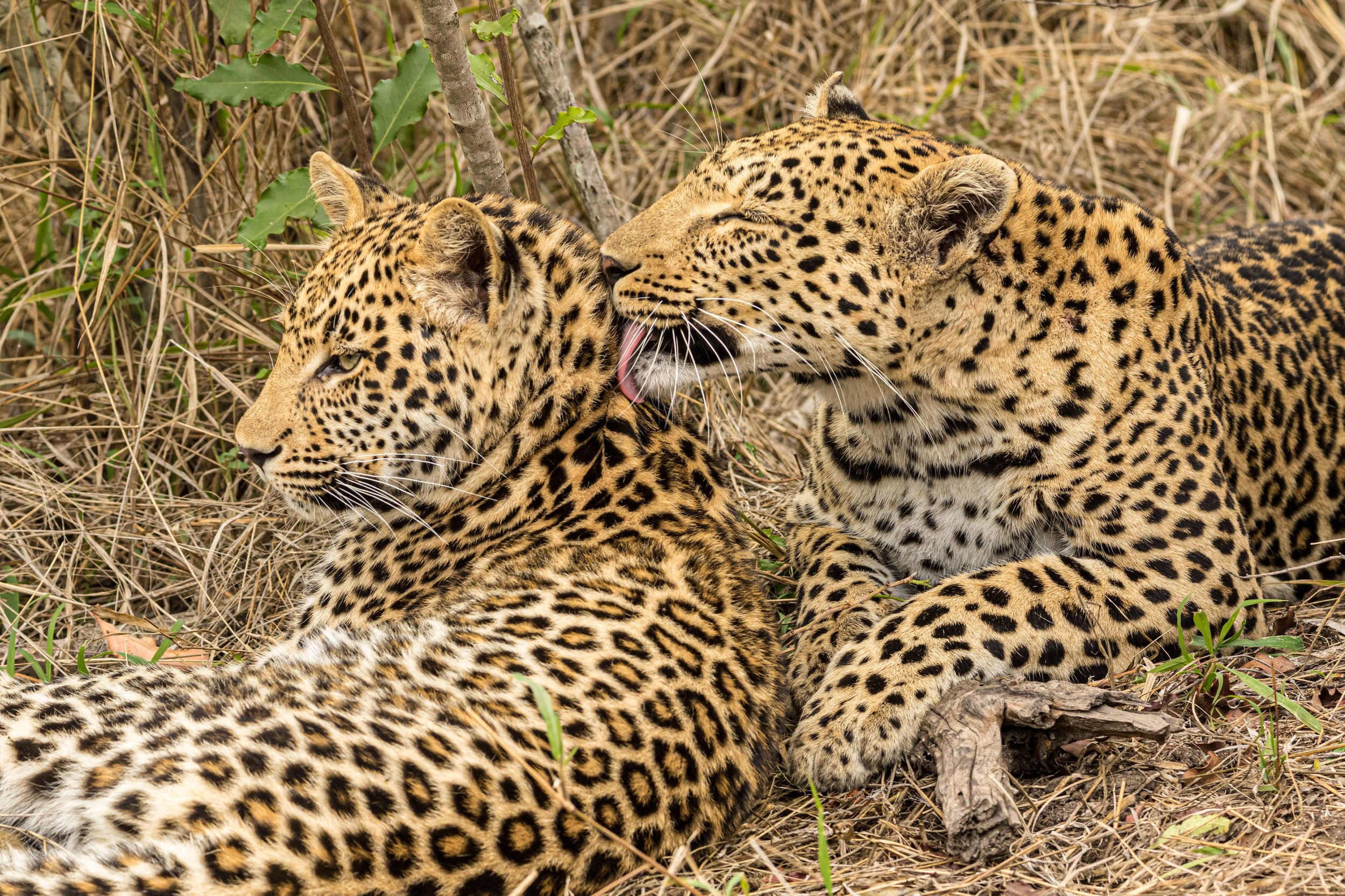Born to Be Wild
Photography & Story by Rona Neri
Few animals display the beauty, grace, power and cunning of the African leopard. These solitary felines are known for their stealth and hunting prowess. They are revered by many African cultures as symbols of courage, leadership and wisdom. On a recent trip to Zimbabwe, Zambia and Botswana, I had the rare joy of encountering and photographing several individual leopards in the wild. Nearly invisible as they glide through the tall grass of the savanna, we were thrilled when one would emerge onto an open path in the afternoon light, or the alarm call of a bird or squirrel would reveal them hanging overhead from the limb of a tree.
One of the leopard’s unique adaptations is their exceptional climbing ability, which explains why many of my images show them walking on or draped over branches. This skill allows them to share space with fellow predators like lions, who are less inclined to climb, and to protect their kills high above hyenas and jackals who are always on the lookout for a free meal. Unlike lions, leopards live alone, and as adults seek each other’s company only for mating. Mothers stay with their 1-3 cubs until they’re about two years old and ready to strike out on their own, teaching them how to stalk and hunt. The third of cubs who survive to adulthood then separate from mom and find their own territories.
Unfortunately, the beauty of leopards’ unique markings and their singular intelligence also makes them an especially sought-after prize for trophy hunters. The United States has the dubious honor of being the number one importer of leopard trophies. Mismanaged hunting and poaching, coupled with habitat loss, slow reproduction and conflicts with humans over loss of livestock, all contribute to the leopards’ threatened status. Organizations such as Humane Society International, US Humane Society and the Center for Biodiversity have petitioned the US Fish & Wildlife Service to increase protections for the leopard under the Endangered Species Act which would increase restrictions on trophy hunting.
You can help leopards by supporting organizations like these, and by planning your own safari. Photo safari tourists bolster the economies of countries with viable leopard habitat, thereby encouraging them to restrict hunting and crack down on poachers. The best part is you help save leopards and other precious wildlife while experiencing your own life-changing adventure!
Help Save the Leopards
Go on a safari with Wilderness Destinations, which supports conservation efforts.
Donate to Wildlife Entrust International, which researches and protects leopards.
Be a wildlife hero by supporting Wildlife Conservation Network, which helps animals and the environment.
Think Like A Leopard
Take a walk on the wild side and try thinking like a leopard for a moment. Grab your journal and join me in a fun writing exercise. I think we can all learn a few Life Lessons From a Leopard.
Meet Rona Neri
Rona Neri is the artist behind the lens at Rona’s Photography. Neri is a self taught photographer, who honed her craft through long hikes, breathtaking wildlife encounters, reading and experimentation.
In 2016, Neri launched her business, which initially focused on Wisconsin wildlife and conservation. Tours of Costa Rica and South Africa ignited her passion for wildlife around the globe. Neri’s award winning photographs are available for purchase through her website.
Check out her other photo essay One Sacred Wild, from her first African Safari, which showcases a wide variety of animals in their natural habitat.

